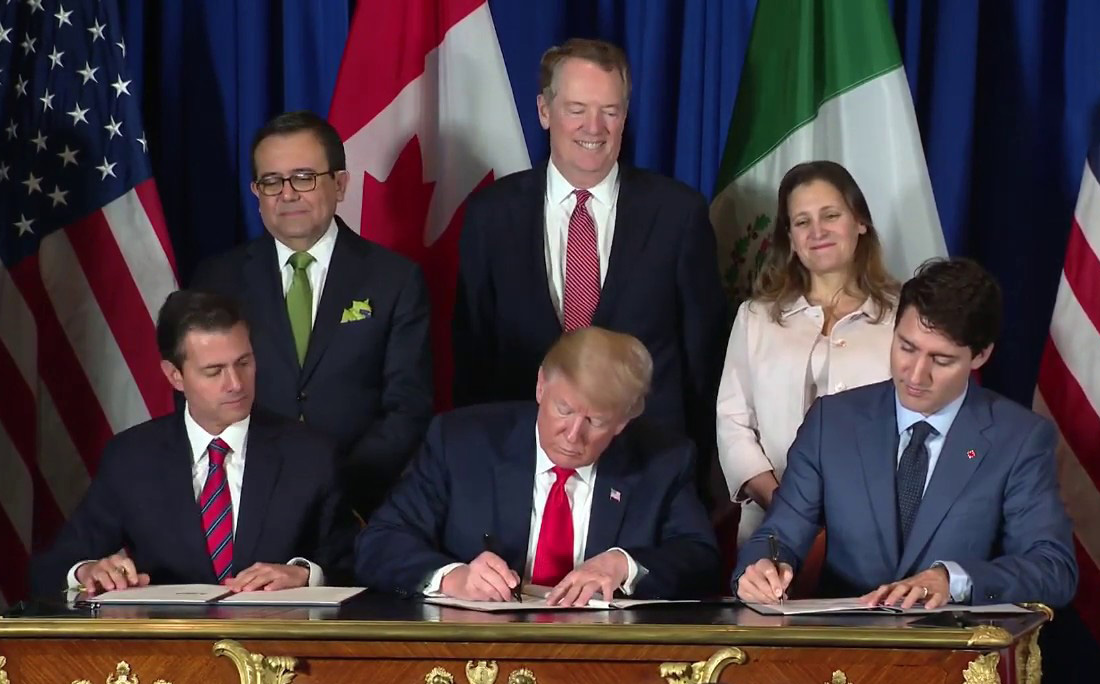 Did everybody get the same answer
Did everybody get the same answer
Apr 22, 2019
WASHINGTON, DC – The U.S. International Trade Commission (ITC) has released its report on the potential economic impact of the U.S.-Mexico-Canada Trade Agreement (USMCA), and as expected, manufacturing makes the most gains.
The ITC report found that the USMCA would have a small but positive impact on the U.S. economy across all sectors. Once the agreement has been fully implemented, Gross Domestic Product would increase by $68.2 billion, or .35 percent. Roughly 176,000 jobs would be added.
Additionally, exports to Canada and Mexico would increase by a total of $33.3 billion or 12.6 percent, and imports from the two countries would increase by $31.5 billion or 8.6 percent. Agricultural exports are projected to increase by $2.2 billion. The industry that will experience the greatest positive impact will be the automotive industry.
While the U.S. rice industry supports the new agreement, it is absolutely vital that the U.S. not pull out of the North American Free Trade Agreement (NAFTA) until the USMCA is in place.
“From the outset, when President Trump said he wanted a new deal, our mantra has been that NAFTA was great for our industry and that if he wanted to improve other parts, he should endeavor to do no harm to what works,” said Betsy Ward, president and CEO of USA Rice. “Canada and Mexico both rank in the top five export destinations for U.S. rice, and maintaining duty-free market access is a priority for the rice industry.”
Congress has said it would not take up the USMCA without the ITC study, which it now has. The next step on the road to ratifying the agreement is for the Trump Administration to send Congress several legal documents including the final text of the agreement, implementing legislation, and a statement of administrative action.
Congressional approval of the USMCA is a priority for industry, but with a divided Congress and the 2020 Presidential campaign heating up it is not a foregone conclusion by any stretch.
“Mexico passed labor reform that was welcome news to many in Congress, however, the steel and aluminum tariffs the U.S. placed on Mexico and Canada remain in place and this represents a huge stumbling block for many Members of Congress,” Ward explained.
Further complicating matters are looming federal elections. Canadians go to the polls on October 21, and pundits doubt the country will ratify the new deal prior to that. Just fifteen weeks later Americans will begin voting in presidential primaries.
“Agriculture is already struggling, and uncertainty around U.S. trading relationships make things that much worse, so these issues need to be resolved. It’s going to be messy, but it needs to get done,” she concluded.